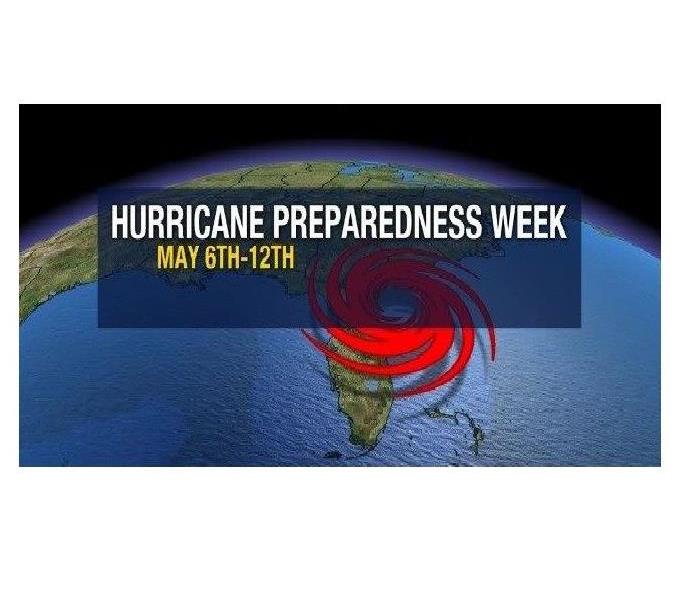Hurricane Preparedness in Our Area
5/30/2018 (Permalink)
Hurricane Preparedness - Be Ready
While we are not located close enough to the ocean to feel a hurricane’s full effect on a regular basis, hurricanes always pose a wind and water damage threat to our property. Two keys to weather safety are to PREPARE for the risks and to ACT on those preparations when alerted by emergency officials. According to the FEMA, we can prepare for a hurricane by following this four stage guide:
Know if you live in an evacuation area. Assess your risks and know your home's vulnerability to storm surge, flooding and wind. Understand National Weather Service forecast products and especially the meaning of NWS watches and warnings. Contact your local National Weather Service office and local government/emergency management office. Find out what type of emergencies could occur and how you should respond.
Contacts
Communications is important during a weather emergency. Keep a list of contact information for these resources:
Emergency Management Offices, County Law Enforcement, County Public Safety Fire/Rescue, State, County and City/Town Government, Local Hospitals, Local Utilities, Local American Red Cross, , Local TV Stations, Local Radio Stations, Your Property Insurance Agent
Everyone needs to be prepared for the unexpected. Your friends and family may not be together when disaster strikes. How will you find each other? Will you know if your children or parents are safe? You may have to evacuate or be confined to your home. What will you do if water, gas, electricity or phone services are shut off?
Supplies Kit
Put together a basic disaster supplies kit and consider storage locations for different situations. Help community members do the same.
Emergency Plans
Develop and document plans for your specific risks. Protect yourself and family with a Family Emergency Plan. Be sure to plan for locations away from home. Pet owners should have plans to care for their animals. The Centers for Disease Control & Prevention offer information on animal health impacts in evacuation shelters.
Evacuation
Review the FEMA Evacuation Guidelines to allow for enough time to pack and inform friends and family if you need to leave your home. FOLLOW instructions issued by local officials. Leave immediately if ordered!
Consider your protection options to decide whether to stay or evacuate your home if you are not ordered to evacuate.
When waiting out a storm be careful, the danger may not be over yet. Be alert for Tornadoes, as they are often spawned by hurricanes. The calm "eye" of the storm – it may seem like the storm is over, but after the eye passes, the winds will change direction and quickly return to hurricane force.
Wait until an area is declared safe before returning home. Remember that recovering from a disaster is usually a gradual process.
Here are some additional resources for Hurricane Preparedness
- FEMA - Are You Ready? Guide
- National Weather Service Weather Safety
- Be a Force of Nature with NOAA's Weather-Ready Nation
- NWS Storm-Ready Sites & Communities
- Occupational Safety & Health Administration (OSHA)
- Ready.gov Kids
- American Red Cross
- Refer to the Federal Emergency Management Agency's (FEMA) gov/hurricanes for comprehensive information on hurricane preparedness at home and in your community.





 24/7 Emergency Service
24/7 Emergency Service
